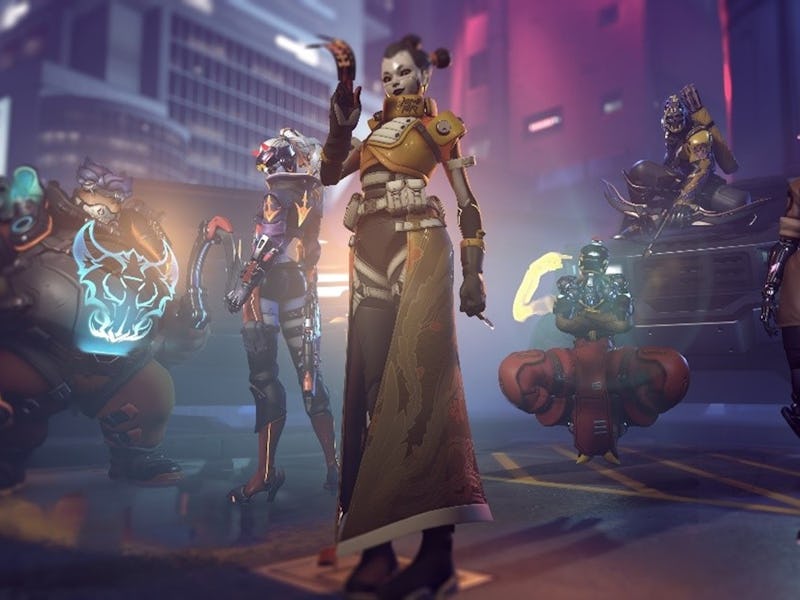Blizzard explains Overwatch 2 tournament's "gender verification system"
You know what they say about the road to hell?

Esports is notoriously a boy’s club. From fighting games to first-person shooters, the competitive gaming scene has long struggled to be inclusive for all. Now, video-game company Blizzard is taking direct action to try to encourage a more diverse player base in the Overwatch 2 competitive scene with a new Calling All Heroes program.
One of the major new events under the Calling All Heroes banner is the Challengers Cup. It will run alongside the amateur competitive circuit, Path to Pro, during the fall and winter of 2022 as an event for “underrepresented genders, such as but not limited to: transgender, non-binary, genderfluid, and women-identifying individuals,” according to a blog post on Overwatch’s website.
“To maintain a safe competitive environment, Challengers Cup will be supported by a thorough gender verification system that all participants must complete,” the post states.
A gender verification system may not make underrepresented genders feel welcome.
Ahead of the official announcement, Inverse asked Blizzard directly for more context and details about the “gender verification system” and received the following statement:
“The Calling All Heroes verification process was built with the insights and efforts of people from marginalized spaces and their experiences in gaming. The verification process is designed to limit any people acting in bad faith and thus requires verification of accounts including Battle.Net, social media accounts and self-gender identification information. We will trust an applicant’s self gender-identification and, if an individual completes all steps, they will be accepted into the program.”
The system is part of a suite of new initiatives from Blizzard that aim to make Overwatch 2 a more welcoming game for all players. On September 27, the company announced Defense Matrix, a new set of systems. The three biggest additions are machine learning and audio transcription of voice chat, the requirement for players to link their accounts to a phone number, and a first-time user experience restricting in-game chat access and certain game features over a lengthy onboarding period.
Kiriko, one of the new characters in Overwatch 2.
While the intention of bringing underrepresented groups into the Overwatch community is welcome, the use of a “thorough gender verification system” risks placing an unnecessary burden of proof on players who may already feel unwelcome in the competitive gaming scene.
Blizzard has previously faced criticism for its handling of diversity and inclusion in its games and among players. In May 2022, the company received backlash when it shared its Diversity Space Tool, which aimed to help developers create more diverse characters by attributing scores based on factors such as age, ethnicity, and gender identity.
Activision Blizzard’s Diversity Space Tool, revealed in May 2022.
The requirement to “prove” your gender is an ask that trans, nonbinary, and other genderqueer-identifying people are already subject to all too often. Many of the political actors trying to push through anti-LGBTQ+ legislation across the U.S. rely on fearmongering that a person may falsify their gender identity. The same ideology leads to the ridicule of cis women if they do not meet a person’s idea of what women should be.
In the sports world, anti-trans rulings in women’s sports based on hormone levels have led to cisgendered women also being banned from competition. Putting the burden on applicants to the Challengers Cup to demonstrate that they are the gender they claim feels less inclusive than it does intrusive. Given the history of gender in sports, it may make many uncomfortable with the process despite Blizzard’s assertion that this new system was built with the help of individuals from marginalized backgrounds.
If the program aims to be fully inclusive, they might refrain from intrusive verification and trust the self-identification process. But this requirement risks harming the very community it seeks to elevate.
Overwatch 2 is coming to PlayStation 4, PlayStation 5, Xbox One, Xbox Series consoles, Nintendo Switch, and PC on October 4, 2022.